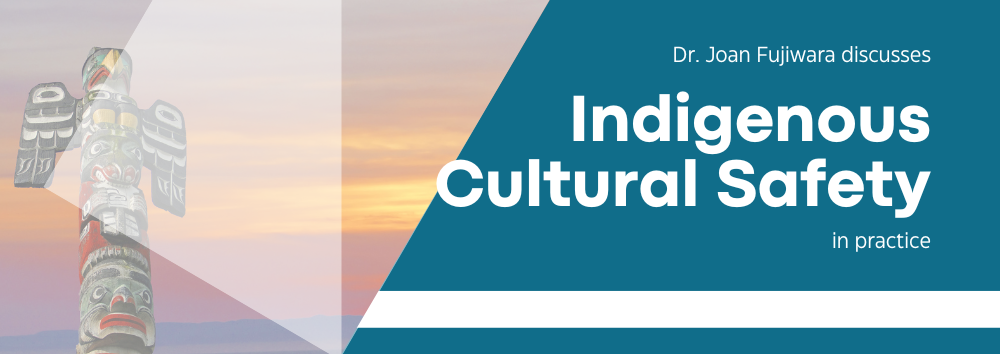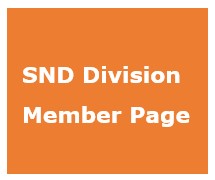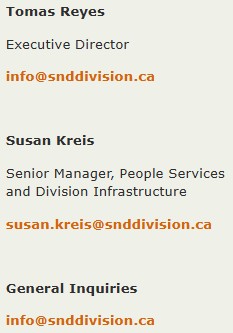
Over the past two years, the Joint Collaborative Committees have been working with Indigenous partners to offer Indigenous Experiential Learning Sessions to medical professionals at various locations across the lower mainland. These sessions aim to help physicians and medical staff understand the residential school experience and how it has affected the health and wellbeing of Indigenous people.
In the fall of 2022, Dr. Joan Fujiwara attended one of these sessions. Here, she talks about how this experience affected her, why she believes it’s important as a physician to develop an understanding of the traumas Indigenous people have experienced, and how Family Physicians can begin to understand how their patients’ personal and family histories might be affecting their health in the present.
Which First Nations Community-based Experiential Learning Session did you attend?
The session I attended was hosted by the Kwantlen First Nation in Fort Langley, at the Kwantlen Cultural Centre.
What made you want to attend an Experiential Learning Session?
Part of the reason, for me, was the location. It’s not a place I’d ever been to before because I don’t think the area is generally open to the public. I found it really valuable to be there in person. It was very neat that we were invited into that space. I’ve participated in some other learning sessions online about Indigenous health, and it’s different from actually being there.
What was the most impactful thing you took away from the experience?
The thing that made the biggest impact on me was the way the experience was arranged. Everyone was asked to take on a different identity and community role – children, mothers, fathers, two-spirit people and elders. They had us stand in different locations in concentric rings depending on the community role we were acting out. They placed four chairs at the centre, for the children. The mothers then circled around the children, and so on, with elders forming the outer ring. We all held hands to represent being a unified community.
Then they removed two of the children, to represent the 50% of children who were sent to residential schools and never returned, and they asked each circle how we felt.
That really impacted me – it made me feel what it would have been like. I’ve heard so much about residential schools. I think as physicians, we hear a lot of things, but to experience something like this helped me understand better than just listening to someone talking about what should or shouldn’t be done.
Afterwards, a residential school survivor spoke about his experience. I found it interesting because what I took away from what he said was that he just wanted us to understand what it was like.
Do you think it’s important for Family Physicians to learn about Indigenous experiences? If so, why?
I think it's incredibly important. I lived and worked in the Yukon for a number of years a long time ago, just after I finished medical school, and there wasn't a lot of information about residential schools. We saw a lot of Indigenous people in and out through the Emergency Department and I really didn't look at them with any understanding.
I’ve worked with a lot of youth and I’ve helped set up a child abuse clinic in Surrey, and over the years, I've come to understand how much things that happen to you or your family as a child impact many generations following that.
I think just that piece is really important for Family Doctors to understand – and a lot of them do. It’s important to always keep in mind that any symptom that somebody comes in with reflects back on many other things that may have happened in their life or their parents' lives or their grandparents’ lives, and that those things are important.
These are the things that Family Doctors can learn about when they're looking after families over the long term. That's the advantage of being a Family Doctor and knowing the family, as opposed to a specialist who might be consulted on one or two occasions.
I think we as people in general just haven't recognized how great the impact has been of what's happened to Indigenous cultures and peoples all over the world.
How can a Family Physician learn about the experiences that might be impacting their Indigenous patients’ health?
There are different ways that you can find out what has happened in somebody's background and if they are Indigenous – because you might not even have that information. You don't need to ask right away, but I think adverse experiences that have happened to a patient and their family are important to know, for a person from any culture, because it affects their health.
Sometimes it's just a time issue and whether people come in or not and how much they trust the doctor.
A lot of Indigenous people in Surrey are urban and away from home and aren't necessarily self-identifying as Indigenous when they go into medical spaces, even if you ask them. In my experience at the child abuse clinic, this is particularly true with youth -- you find out a lot of what they told you at the beginning wasn't exactly correct, because they didn't trust you.
There's a big barrier to overcome a lot of the time with Indigenous patients because of the history of everything in this country. They are often distrustful at the beginning of the relationship. You have to ask in the right way at a time when you judge it's going to be okay to ask.
We tend to have guidelines to follow for any particular disease or illness that patients come in with. But for this kind of conversation, it’s really more about the relationship that you as a Family Physician develop with the patient and their family. It would be nice if there were a checklist of questions that you could ask, but it doesn’t work that way.
You learn to judge when you can ask questions about what's happened in the past. And you might only learn a little bit at a time. That's what's nice about being a Family Doctor: you don't need to do it all in one visit. You can find out over time.
You can then discover more about what's happened to this person and subsequently how that is affecting the symptoms they are coming to you with because they're likely connected in some way.
Again, I think that's why family medicine is so important. I don't know who else does that.
What would you say to Family Physician colleagues who want to expand their understanding of Indigenous cultural safety but who aren’t sure where to start?
It's hard because there's a lot of information available and I think people need to read and attend learning sessions as much as they can just for their own understanding. But going through organizations that provide learning opportunities specifically for medical professionals is a good place to start because they present you with situations you might be familiar with. A lot of organizations offer these courses and readings at no cost.
Like I said earlier, the experiential learning session that I attended was much more impactful than some of the other learning I’ve done. If you have the opportunity to attend something like that, I would recommend it because it would be really helpful in understanding more about what Indigenous people have experienced because of residential schools.
Ultimately, I think if people just try to learn as much as they can in whatever way they can, through the medical lens, that’s a really important first step.



